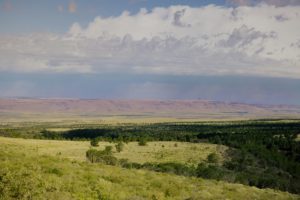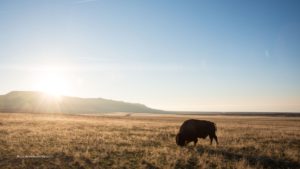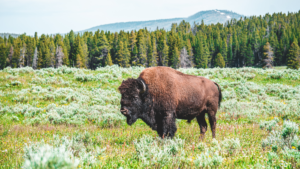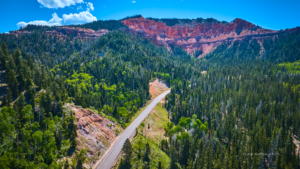For Immediate Release
September 6, 2018
Contact:
Erik Molvar, Executive Director, Western Watersheds Project (307) 399-7910
LARAMIE, Wyo. – Western Watersheds Project is increasing its oversight of the Thunder Basin National Grassland in order to push back against efforts to undermine the reintroduction of the endangered black-footed ferret and efforts to escalate the poisoning of prairie dogs on public lands. In a strongly-worded letter delivered yesterday to the U.S. Forest Service, which manages the Thunder Basin National Grassland, the conservation organization put the agency on notice that it would increase its efforts to ensure livestock grazing operations aren’t impairing the agency’s ability to manage for imperiled native wildlife.
In state legislative session on the issue last week, a representative of the livestock industry urged the agency to abandon reintroduction plans for the ferret, citing the loss of livestock forage due to prairie dog use of the grasslands, a species which is the obligate prey of the black-footed ferrets. Western Watersheds Project contends that if there is a forage shortage, native species should get the priority.
“Endangered black-footed ferrets need vast expanses of active prairie dog colonies to survive,” said Erik Molvar, Executive Director of Western Watersheds Project. “We’re in the absurd situation where ferrets are dying in captivity in captive breeding programs for lack of suitably large prairie dog colonies, even on public lands, because the livestock industry doesn’t want to coexist with the native wildlife on the grasslands.”
The black-tailed prairie dog is a Forest Service Sensitive Species on the Thunder Basin National Grassland, and the Grassland Plan adopted in 2002 designated almost 50,000 acres as “Black-Footed Ferret Reintroduction Habitat,” where prairie dogs get added protections. Prairie dogs are considered a “keystone species” on the Northern Plains, providing the key food or habitat for a variety of rare native wildlife, including the swift fox, burrowing owl, golden eagle, and ferruginous hawk. Prairie dogs are commonly poisoned in the Thunder Basin region through the use of zinc phosphide and Rozol, both of which cause the slow death of any animal that ingests the poisons through internal hemorrhaging.
“If the National Forest Service is going to authorize livestock grazing on public lands, it needs to balance that private use with the will of the landowners – the American people – who have a strong interest in maintaining diverse and healthy native wildlife,” said Molvar. “It is completely unacceptable for commercial entities to poison native wildlife on public lands, particularly prairie dogs that are key to the recovery of the highly endangered black-footed ferret.”
“The High Plains of eastern Wyoming haven’t been an area of heavy focus for Western Watersheds Project in the past, but this new effort on the part of ranchers to try to increase the poisoning of prairie dogs and impede the reintroduction of black-footed ferrets on the Thunder Basin National Grassland has convinced us that the public lands livestock operations in this area deserve a lot more scrutiny,” said Molvar.






